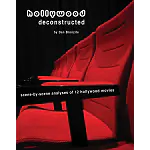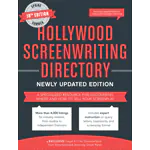As a screenwriter it is important to remember that while the stories we tell should reflect real-life (or aspects of it) in order to engage an audience and help them identify with the narrative and characters that inhabit the world we create, life is different from movie life. In real life events occur in chronological order and time passes much, much slower.. even though some days may not feel like it. If we recounted the story of our day in minute detail minute by minute to our friends over a drink after work, they’d probably shoot themselves or jump off a bridge with suicidal boredom because most of the events that occur are insignificant and uninteresting.
From the moment we are awoken in the morning by our alarm clock to the moment we arrive at work, many, many things have happened. But put them all in a screenplay and it won’t be a blockbuster, unless of course your entire story is about an hour in the life of an everyday man who gets kidnapped on his way to work due to a case of mistaken identity!
A movie may begin by showing a man waking up, getting ready for work, feeding his dog and jumping into his car, and that’s fine. It reveals certain things about the character that may be important for us to know before the story unfolds. Similarly, a scene in the middle of a movie could contain these events, but ONLY if it is important to the character, plot or pacing. Otherwise, condense those events into a shorter sequence of shorts or cut them altogether.
And that’s where the concept of “getting in and out early” plays its crucial part. When writing a screenplay, you only have so much time to tell the story and so you must not waste those precious moments on things that don’t matter. Why not cut from the alarm clock, to his irritated expression in bed and then right to him sitting down at his desk? It still works, doesn’t it. Absolutely. And the great thing is we now have more time to spend on more significant plot and character developments.
I’m not saying go through your script and condense everything to the point that it’s all cut – cut – cut.. that would be equally annoying and give us a headache. Pace means highs and lows, fast and slow, moments of intense action and lulls for us to contemplate what has passed. The key is to find an effective balance and part of that is understanding when there is too much “chaff” in your scene to scene progression. So remember to get into your scene as late as possible and out of it as early as possible. This will tighten a flabby script and help focus your audience’s time and attention on the things that really matter.




